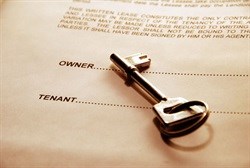As far as commercial property rentals are concerned, there's a misconception that the Consumer Protection Act (CPA) does not apply...
It provides clear guidance for residential property rentals, laying out landlord and tenant rights and responsibilities, leaving little room for interpretation. But the CPA also applies to companies (or other legal entities), so no landlord should assume that the rights of tenants and the corresponding obligations of landlord as expressed under the CPA will automatically fall away in the commercial space.
Maintenance and access
According to Leon Breytenbach, Commercial Manager for the Rawson Property Group, maintenance and access are the two most common points of contention between commercial property landlords and tenants. "There can be a lot of confusion and misdirection around the landlord's rights and responsibilities in these areas," he admits, "but a good contract will lay everything out in a clear and unambiguous fashion."
"The landlord is obligated to ensure all exterior structures, common areas and basic services are kept in good condition," he continues. "Walls, roofs, communal parking areas and services like water and electricity, are all part of the landlord's maintenance responsibilities, and the tenant is well within his rights to complain if these fall into disrepair."
"We usually have a clause in our contract that requires the tenant to give the landlord seven days to fix any maintenance that has been neglected or overlooked," says Breytenbach. "This means tenants can't claim breach of contract for issues the landlord has not been made aware of in writing, and given sufficient time to rectify. Similarly, the landlord can't indefinitely neglect fair maintenance on the structures and areas under his care."
To carry out maintenance, the landlord does, of course, need access to the premises. It's important to note, however, that this has to be done in a reasonable manner.
"The landlord has the right to enter the premises to carry out maintenance or conduct inspections," says Breytenbach, "but he can't just show up at any time and demand access for no reason." He goes on to explain that fair notice and a valid reason must be supplied to the tenant, and every effort made to accommodate the tenant in terms of minimising disruption to their business.
"This is vital, even in the case of non-payment by the tenant," Breytenbach adds. "A landlord or managing agent can't just go in and change the locks, even if your contract specifies that any assets kept on the premises serve as security for the payment of rent. You have to go the legal route and have those assets attached in the appropriate manner - anything else will more likely hurt your claim than help it."
"As a landlord, you can't present your tenant with a one-sided, unbalanced or unfair contract and tell them that if they won't sign it, someone else will," says Breytenbach. "You also can't act unfairly when enforcing the conditions of that agreement. That's not to say it doesn't happen," he adds, "but it opens the door to legal action by your tenant."
"The safest way to do things, as a landlord," he advises, "is to use a reputable commercial rental agent to ensure your agreement protects your interests as far as legally possible, without straying into grey areas that could leave you on the wrong side of the law. You also need to respect the contents of that agreement, and uphold your end of the bargain."































